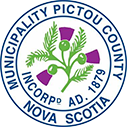MOPC Warden Robert Parker said the effects of the new taxes would be devesting to rural areas in the province that have a lot of seasonal property owners.
“They put a lot into their homes and many plan to retire here,” he said. “We are sending a terrible message to people from out of province. They are here all summer supporting our farmers’ markets and shops. The premier admitted this was a blunt instrument meant to take a swing at the housing industry but there is no proof that it is going to help.”
The provincial government said during its budget release that the new revenue would help Nova Scotia’s housing crisis, but there haven’t been many details released on how this would happen or exactly how much revenue will be generated by the proposed taxes.
MOPC Council recently received letters from the municipalities of Chester and Guysborough counties expressing the same concerns about the proposed new taxes. It also heard from its own staff that the proposed taxes are particularly concerning for many reasons including the fact that it dips into the municipal government territory of collecting taxes for revenue-generating purposes.
It suggested the $2.00 per $100 rate will be the largest property tax increase ever levied in the MOPC and it is unlikely that the properties impacted in this municipality align with the attainable housing goals because most properties sold wouldn’t be considered affordable housing.
MOPC staff also has concerns it could deter non-residents from building new homes or cottages in the county. It suggested any revenue generated by the proposed taxes, should remain in the municipality where it is collected to be invested in projects that will see an increase in attainable and affordable housing.
“Once it is done once, it will be easy for (the province) to do it another time,” said Warden Parker. “(The province) could say, ‘let’s go for another property tax or deed transfer tax’. It is intruding into something that is municipal funding.”
Coun. Deborah Wadden, who is also a rural representative with the Nova Scotia Federation of Municipalities, said the NSFM is very concerned about the proposed taxes and has been trying every avenue to meet with the provincial government to discuss the issue.
Coun. Randy Palmer said he has a friend living out of province who recently bought his father-in-law’s home with plans of returning to Nova Scotia when he retires.
“He is paying two mortgages right now and this will add $4,000 onto his taxes,” he said. “He can’t afford it, but he wants to come back to where his family is. It has an effect on a lot of people and we don’t know the severity of it.”
Coun. Chester Dewar said there are homes in his rural district that are well-maintained because of people who live here seasonally, but now he is unsure what will happen to them.
“I am totally against it. I think it is wrong. I want to send a letter or an email saying this council is opposed to this legislation,” he said.
